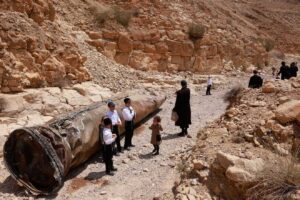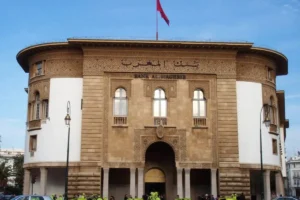Jewish tourism between Morocco and visitors from Israel and America is on the rise.
For the large group of congregants from The Temple who traveled to Morocco last November, it was like a trip back in time. The North African nation, which once was home to a population of 250,000 Sephardic Jews, still retains many of its Jewish landmarks, including a number of old synagogues and cemeteries and the only Jewish museum in the Arab world.
Rabbi Lydia Medwin, who led the trip with The Temple’s senior rabbi, Peter Berg, was impressed with the long tradition of craftsmanship in the country, where Jews were often prominent artisans.
“The old cities like Fez and Marrakesh have these markets that look like you’re back in medieval times. You can visit the tannery and visit the dyers and the metal workers and the tile and the silk makers. I mean, there’s just incredible artistry there.”
The country has a long and rich Jewish history that dates back to the 1st century C.E., when the Romans destroyed the Temple in Jerusalem and decimated the Jewish community there. Morocco became a refuge both from the destruction in Jerusalem and the murderous regime in Rome. Jews even settled in the Atlas Mountains of southern Morocco and integrated themselves into the Berber communities there.
It remained a haven for 2,000 years, despite the Muslim conquest of the country. The Spanish Inquisition, late in the 15th century, led to another massive wave of immigration from the Iberian Peninsula. Jews were accorded the status of dhimmis, who paid a special annual tax but were otherwise allowed to practice their religion and participate in the social and commercial life of the country.
There were walled Jewish communities, or mellahs, in such cities as Essaouira, a city on the western coast of Morocco, where Jews once made up over half of the population, and in the large Mediterranean city of Casablanca, which became home to more the two dozen synagogues, Jewish schools and institutions. The great Jewish medieval philosopher Moses Maimonides settled in Morocco before moving on to Egypt where he became a physician in the royal court.
Today, the burial site of another famous rabbi, Shlomo Bel Hensh, is popular with pilgrims. His tomb, from the 17th century, is seen as a magical place venerated by Moroccans of all religions. When Rabbi Medwin and her Temple tour group visited the tomb, they were impressed by the aura that appears to surround the rabbi’s resting place.
“People will go to these shrines and pray there for something magical to happen in their lives, health, and fertility and all the things that people pray for. But what’s interesting is that those same saints that were Jewish are also visited by Jews and non-Jews alike. So, Muslims will count these saintly people among their own.”
The degree of acceptance Jews enjoyed extended well into the 20th century. But with the rise of Arab nationalism in the 1950s and 1960s, the life of Morocco’s Jews became more precarious. Most of them left.
Today, there are over 900,000 Moroccans in communities in Tel Aviv, Ashdod, and Natanya but only about 4,000 Jews in the North African nation.
In 2020, Morocco signed onto the Trump Administration’s Abraham Accords. In exchange for United States support for Morocco’s claim to the Western Sahara, diplomatic ties with Israel were renewed and enlarged.
Just last weekend, Israeli government officials visited Morocco to ease visa restriction that will help bring more Moroccans to Israel to work in the construction industry and in hospitals. Israel’s minister of interior and health, Moshe Arbel, hailed the expanded relations between the two nations.
“We are deepening our ties to Morocco and pouring more substance into the peace agreement.”
This year, approximately 200,000 Israelis are expected to visit Morocco, many to renew the cultural and religious ties they left behind more than a half century ago. That’s a big increase from the 70,000 or so that have visited in recent years.
American Jews, like The Temple delegation, are increasingly being lured by the government’s warm welcome, rich Jewish history, and economical tours. The Jewish Federation of Greater Atlanta is planning its own trip to the country in November.
Rabbi Medwin came away impressed with what she feels is a new sense of energy in the small Jewish community that remains today.
“There’s a great sense, from what we could see, of optimism. The king has done an amazing job with infrastructure and the cities are beautiful. But there is a big question about what this progress means to the Jewish community. So, while Morocco has a fabulous Jewish past, we’ll have to see what kind of a Jewish future develops.”
Source : Atlanta Jewish Times
















